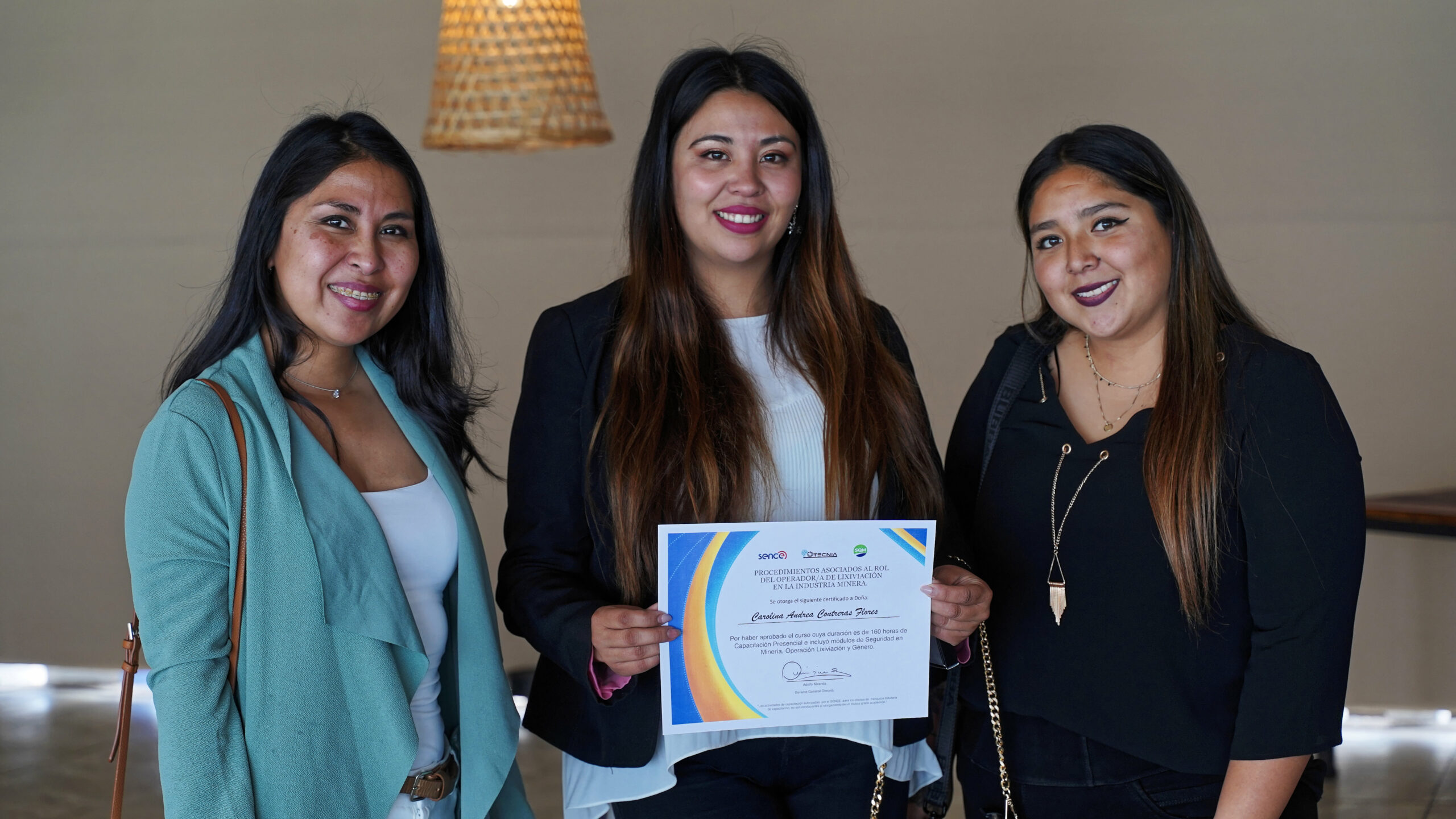News
47 Young People from Tarapacá Certified to Work in the Mining Industry

Thanks to a joint effort between SQM, Universidad Santo Tomás and SENCE, 34 women and 13 men participated in courses that are part of the Community Training and Inclusion Program developed by the company in northern Chile.
Regional and community authorities joined mining company executives to honor the participants at a graduation ceremony for the High Tonnage Truck Operator and Leaching Operator B courses. This SQM-led initiative benefited 47 students from towns such as Huara, Bajo Soga, Pisagua, Pozo Almonte, Pintados and Alto Hospicio, with support from Universidad Santo Tomás and the Chilean National Training and Employment Service (SENCE).
These courses were developed to help meet the company’s objectives of contributing to the quality of life of communities surrounding its operations, providing knowledge to improve the future for local families.
According to Natalia Pizarro, SQM’s Senior Vice President of People and Performance: “We are very pleased with this process, which has finalized with a very moving ceremony. The program not only fulfilled the dream of 47 students, but also contributed to the personal and professional growth of each individual and their families. We are firmly committed to the Tarapacá Region, where we will continue to add value to these people’s lives and generate opportunities for development and growth.”
As for the experience of collaborating with academic and training organizations, the executive added that “these alliances are key to generating diverse, quality content. In these particular courses, different methodologies were employed over a 30-day period to teach the students high-level competencies, which is what we seek at SQM.”
Hugo Fernández, Director of Training and Identity at Santo Tomás, stressed the importance of academia joining forces with companies such as SQM to better communities and contribute to the region. “This demonstrates how public policies can promote solid training programs, where the family is involved, that are good for all organizations and the region in general.”
Interestingly, the High Tonnage Extraction Truck Operator course was attended by 26 women, while the Leaching Operator B course was attended by 13 men and 8 women, which is well aligned with the objective of promoting female employment in the mining industry.
Carolina Contreras, a graduate of the Leaching Operator B course, commented during the ceremony that her goal “has always been to enter mining to have a better standard of living. I hope to stay in the company and continue improving myself to reach very high levels. It is important that universities join these trainings, to contribute to the region’s economy and give opportunities to people who cannot always reach higher education.”
On the topic, Pablo Pisani, Director of Communities and Public Affairs for SQM’s Nitrate and Iodine businesses, added: “This time we wanted to reach remote locations in El Tamarugal that lack training opportunities, which are essential to entering the world of mining. As an organization we are proud because we have put together a very powerful group of people, who we think will make a great contribution to our company or to their communities, territories and the entire region.”
About the event, Wladimir Astudillo, Tarapacá’s regional representative from the Ministry of Mining, commented that “mining is the most important industry we have as a country and as a region, so it is gratifying when the public, private and labor sectors take charge of this type of valuable initiative, since they recognize local needs like access to jobs or training opportunities. This is more than training, it is changing these individuals’ futures.”
The graduates will now take part in a recruitment and selection process, from which 24 will be selected to join the company’s Apprentice Program at one of the company’s sites, where they can contribute the knowledge they acquired in the course.
